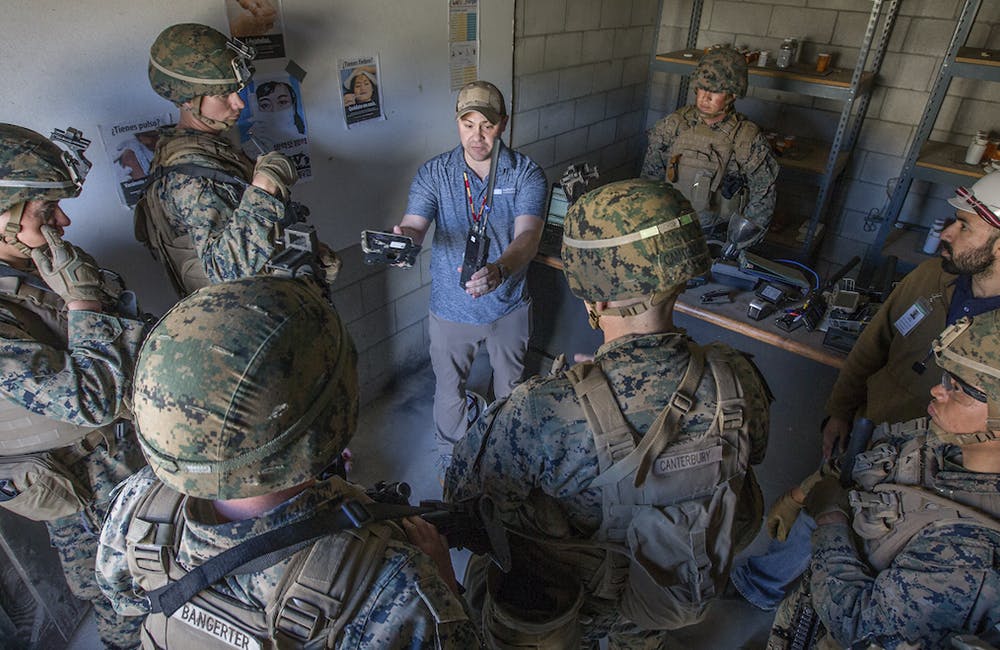Marine Corps Taking Hybrid Approach to Zero Trust Architecture
Identity and automation are supporting military personnel amid zero trust architecture implementation, but a skilled workforce is still needed.

A zero-trust architecture is a way to embed securities into the frameworks of everything you do. It gives you a specific set of tenants, principles or mandates depending on the documents you’re using, according to U.S. Marine Corps Deputy CIO Renata Spinks.
During a recent Federal Insights Exchange webinar Spinks said the Marine Corps has taken a hybrid approach to zero trust. The service is not only looking at different areas of information and how it applies to their unique mission threads, but also focusing its attention on identity.
“Zero trust for us was a keystone architecture that we had to hone in on, and from a Marine Corps perspective, we chose to concentrate on identity,” Spinks said. “If we can manage our identities and have access controls to a place where we can give that conditional access based on not just on what your role is but also your pattern of behavior.”
Spinks believes automation, another area of focus for the Marine Corps, is all about sustaining compliance by risk assessments. Making sure you can modernize processes that accredit systems in a continuous manner not only helps with security, but also increases momentum for military personnel.
Spinks noted that in situations where lives are at stake, personnel out in the field should be able to have information when their application is identified as unsafe.
“So the Marine Corps is focused on the user, the Marine, and what that Marine needs at any point, at anytime, anywhere at the speed of light,” Spinks said. “The warfighter piece, the boots on the ground, is really where you have to go to actually see the challenges they’re facing and the problems they’re solving so you can understand sense of urgency.”
“I think educating our fleet marine forces, workforce and decision-makers on what those controls are and why inheriting controls is so critical and why those platforms being supported in a continuous manner is important. Where we can find efficiencies and then we must make sure the implementation is tight as it can be,” Spinks added.
Spinks also discussed some of the talent workforce challenges the Marine Corps is currently facing.
“We’re always looking for talent. We’re heavily recruiting for the application development MOS where you get the chance to bring a skill set into Marine Corps. We also host innovation challenges, and these give us a chance to see the talent that people have and learn what’s in the realm of possible,” she said.
A few months ago, Spinks put out several high-quality expert (HQE) positions, which is another way the Marine Corps is trying to address workforce challenges. She said from a pay perspective industry will win, but from a value perspective it depends on impact.
“We’re restricted from interviewing, but we do make sure we are closely woven in with our acquisition team to say here’s what these things mean and some of the challenges we’re trying to get after in these certain areas so we can equip them during their assessments,” Spinks said. “The way we manage our talent is not just recruiting and getting people on board, it’s also how you manage the compensation piece, how you manage the morale of those we hire and come into the Marines Corps who come to serve their country.”
This is a carousel with manually rotating slides. Use Next and Previous buttons to navigate or jump to a slide with the slide dots
-

GSA Urges OneGov Adoption to Accelerate Unified IT Modernization
GSA leaders say broader use of OneGov contracts will lower software costs, standardize terms and accelerate modernization across government.
3m read -

From Fed to Founder: Joe Scheidler on People, Policy, Innovation
Joe Scheidler outlined lessons from his White House and State Department tenure that helped drive his startup success.
7m watch -

Congress Seeks 10-Year Renewal of Cyber Threat Sharing Law
The PAACT Act seeks a 10-year CISA 2015 reauthorization to improve threat reporting and strengthen federal cyber defenses.
2m read -

White House Eyes New Pillar in Cyber Strategy Refresh
Sean Cairncross unpacked the upcoming national cybersecurity strategy's new deterrence pillar and expansion of public-private collaborations.
4m read








